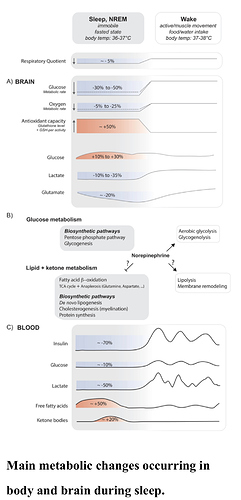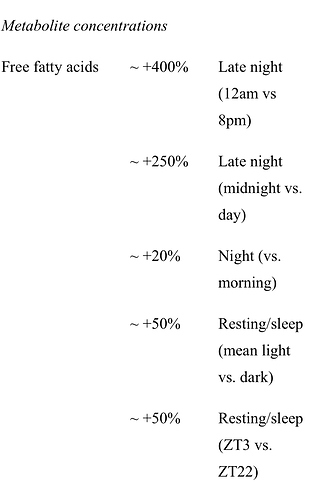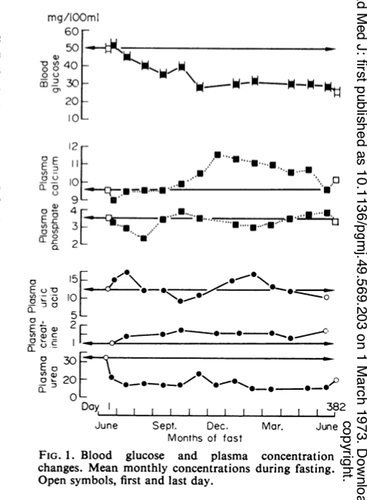The readings could be from the day before also?
Most body fat oxidation occurs during sleep according to this Respiratory Quotient (RQ):
image link“…During sleep, the CMRglc decreases much more than does CMRO2. Moreover, the transition into sleep is accompanied by a reduction in whole-body RQ. These findings suggest that the brain, like the rest of the body, shifts towards oxidation of fatty acids and ketone bodies released into the circulation during this period. …” …More
I notice that FFA bump then the ketones following on its heals.
image linkBlood Metabolites:
Also seems during waking hours we burn exclusively glucose or creatine?
Richard also has a post on the forum (somewhere?) about how much body fat it is possible to burn per day in contrast to a “…maximum rate of body fat use is 31 kcal per pound ?”




 I wish we’d have another such fast, rigorously studied, today.
I wish we’d have another such fast, rigorously studied, today.
 For fans of the other measure, that’s just under 1 mmol/L.
For fans of the other measure, that’s just under 1 mmol/L. 